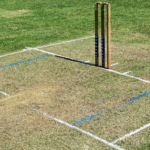Have you ever watched a Formula 1 race and wondered how to become a professional go-kart racer? Well, you’re in the right place!
Go-karting is the starting point for almost every famous racing driver you see on TV today. It’s where legends like Lewis Hamilton, Sebastian Vettel, and Max Verstappen first learned to race.
Go-karting isn’t just a fun weekend activity – it’s a serious sport that can lead to an amazing career.
Many people think racing is only for the super-rich, but that’s not entirely true. With the right plan, dedication, and smart choices, anyone can learn the process to become a professional go-kart racer.
How To Become A Professional Go-Kart Racer?

This guide will walk you through everything you need to know. From learning basic driving skills to competing in world championships, we’ll cover it all.
We’ll also talk about costs (because let’s be honest, that’s important), where to learn, and how much money you can make as a professional racer.
Whether you’re a complete beginner or someone who’s been karting for fun, this article will help you understand the step-by-step process to turn your passion into a career. Ready to start your racing journey? Let’s dive in!
Steps To Become A Professional Go-Kart Racer
Becoming a professional go-kart racer isn’t something that happens overnight. It’s a journey that requires patience, practice, and persistence. Think of it like learning to play a musical instrument – you start with basic notes and eventually play complex songs.
The path from beginner to professional involves several important stages. Each step builds on the previous one, creating a strong foundation for your racing career. The key is to take each step seriously and not rush through the process.
Most professional racers start young, but that doesn’t mean adults can’t succeed. Age is less important than dedication and natural talent. What matters most is your willingness to learn, practice, and improve constantly.
Master the Basic Skills
Before you can dream of racing professionally, you need to master the fundamental skills of go-karting. This is like learning to walk before you run – it’s essential.
Basic driving skills include:
- Steering control – knowing how to turn smoothly
- Braking technique – stopping at the right time and place
- Acceleration management – speeding up without losing control
- Cornering – taking turns efficiently and safely
But driving isn’t the only skill you need. You should also understand:
- Go-kart maintenance – how to check and fix basic problems
- Racing terminology – the language used in motorsport
- Track strategy – planning your race approach
- Safety procedures – staying safe on the track
Practice makes perfect, so spend as much time as possible learning these basics. Many professional racers say that mastering the fundamentals early helped them succeed later in their careers.
Participate in Karting School or Join A Racing Club
Once you’ve learned the basics, it’s time to get serious about your training. This means finding a proper place to learn and practice regularly.
Joining a karting club gives you:
- Professional instruction from experienced coaches
- Regular practice sessions on proper racing tracks
- Access to well-maintained equipment
- Racing opportunities against other drivers
- Networking with other racers and industry professionals
When choosing a karting club, look for these important features:
- Safety record – make sure they prioritize safety
- Quality equipment – well-maintained karts and safety gear
- Experienced instructors – coaches with racing backgrounds
- Regular events – opportunities to race frequently
Some Famous Karting Clubs Where You Can Start Your Early Racing Days
Choosing the right karting club can make a huge difference in your development as a racer. Here are some of the best clubs around the world:
Top Famous Karting Clubs in the UK Region
| Club Name | Location | Why It’s Special |
|---|---|---|
| PF International Kart Circuit | Lincolnshire | World-class facility with international standards |
| Rowrah Karting | Cumbria | Challenging track is used for major competitions |
| Rye House Karting | Hertfordshire | Historic venue with excellent training programs |
| Buckmore Park | Kent | Professional coaching and regular race events |
| Llandow Grand Prix Circuit | Wales | Varied track layout perfect for skill development |
Top Famous Karting Clubs in the US Region
| Club Name | Location | Why It’s Special |
|---|---|---|
| New Jersey Motorsport Park | New Jersey | Multi-track facility with different skill levels |
| Orlando Kart Centre | Florida | Year-round racing due to great weather |
| Langley Speedway | Virginia | Strong competition and excellent facilities |
| Indianapolis Motor Speedway | Indiana | Legendary venue where professionals train |
Top Famous Karting Club in The Asia Region
| Club Name | Location | Why It’s Special |
|---|---|---|
| K1 Kart Racing | Multiple locations | Standardized equipment and fair competition |
| GT Team Racing | Various Asian countries | Professional development programs |
| Meco Motorsport | India | Growing racing scene with international connections |
| JK Motorsport | India | Strong grassroots racing programs |
| Sepang International Circuit | Malaysia | F1-grade facility for serious racers |
How Much Costly Is Karting?
Let’s talk about the elephant in the room – money. Yes, karting can be expensive, but it doesn’t have to break the bank if you’re smart about it.
The truth is that motorsport requires investment. However, many successful racers started with limited budgets and found creative ways to fund their passion.
Initial costs you should expect:
- Club membership fees – usually $200-$500 per year
- Racing license – around $50-$100 annually
- Safety equipment – helmet, suit, gloves ($300-$800)
- Practice sessions – $40-$50 per session
- Race entry fees – $50-$150 per race
Good news: If you show talent and dedication, sponsors might help with costs. Many successful racers earned scholarships or sponsorship deals that covered their expenses.
Factors that affect the cost of karting
Understanding what affects karting costs helps you budget effectively and make smart decisions about where to spend your money.
Location matters a lot:
- Urban tracks tend to be more expensive
- Rural tracks often offer better value
- Popular tourist areas charge premium prices
- Local community tracks are usually more affordable
Track type influences pricing:
- Indoor tracks – generally $45-$60 per session
- Outdoor tracks – typically $30-$50 per session
- Professional circuits – $60-$100 per session
- Rental vs. own kart – owning saves money long-term
Time and duration factors:
- Weekend sessions cost more than weekdays
- Evening slots are pricier than morning ones
- Longer sessions offer better value per minute
- Group bookings can reduce individual costs
| Session Duration | Typical Cost Range | Best Value |
|---|---|---|
| 15 minutes | $15-$30 | Good for beginners |
| 30 minutes | $35-$50 | Most popular choice |
| 60 minutes | $80-$90 | Best value for serious practice |
Develop Skills, Win, and Repeat
Now comes the exciting part – putting your skills to the test! This stage is all about gaining experience, improving your abilities, and building a winning record.
Your focus should be on:
- Consistent performance rather than occasional fast laps
- Learning from every race – both wins and losses
- Building relationships with other racers and teams
- Maintaining your equipment properly
- Staying physically and mentally fit
Race as often as possible. Each race teaches you something new about strategy, competition, and handling pressure. Don’t get discouraged by early losses – every professional racer has lost many races while learning.
Key areas for improvement:
- Race craft – knowing when to overtake and defend
- Consistency – maintaining fast lap times throughout the race
- Mental toughness – staying focused under pressure
- Physical fitness – karting is more demanding than it looks
Become a regional winner and compete for the FIA Karting Championship
If you’ve been winning local and regional races consistently, it’s time to aim for the big leagues – the FIA Karting Championship.
The FIA Karting Championship is the Olympics of karting. It’s where the world’s best young drivers compete for the chance to move up to higher levels of motorsport.
To compete at this level, you need:
- Proven track record in regional competitions
- Serious financial backing or sponsorship
- Professional team support
- Mental preparation for intense competition
- Physical fitness at peak levels
This championship is crucial because it’s watched by Formula 1 teams, sponsors, and other professional racing series. A good performance here can open doors to incredible opportunities.
What is a professional go kart racer salary?
Let’s be realistic about the financial side of professional go-kart racing. Unlike other professional sports, karting earnings vary dramatically based on your level and success.
Professional go-kart racer earnings typically range from $10,000 to $100,000 per year. However, this depends on several factors:
Factors affecting salary:
- Competition level – local vs. international championships
- Sponsorship deals – can significantly boost income
- Prize money – varies by championship series
- Coaching opportunities – many pros teach to supplement their income
- Team contracts – factory team drivers earn more
Income sources for professional racers:
- Prize money from race wins and championships
- Sponsorship deals with brands and companies
- Appearance fees for special events
- Coaching and instruction services
- Product endorsements and partnerships
| Career Level | Typical Annual Earnings | Main Income Sources |
|---|---|---|
| Local Professional | $10,000-$25,000 | Prize money, coaching |
| National Champion | $25,000-$50,000 | Sponsorships, prizes |
| International Competitor | $50,000-$100,000+ | Major sponsorships, contracts |
FAQs:
- Q: How old should I start go-kart racing?
A: You can start as young as 8 years old in many regions, but it’s never too late to begin. Many professionals started in their teens or even early twenties.
- Q: Do I need my go-kart to become professional?
A: Eventually, yes. While you can start with rental karts, owning your kart becomes necessary as you advance to higher levels of competition.
- Q: How dangerous is go-kart racing?
A: Modern go-karting is relatively safe when proper safety equipment is used and rules are followed. Serious injuries are rare with good safety practices.
- Q: Can women become professional go-kart racers?
A: Absolutely! Many successful female racers compete at the highest levels. Karting is one of the most gender-neutral motorsports.
- Q: How much practice time do I need per week?
A: Serious aspiring professionals typically practice 2-3 times per week, plus physical fitness training and studying race footage.
- Q: Is go-kart racing only for wealthy people?
A: While it requires investment, many successful racers started with modest budgets. Talent and dedication often attract sponsorship opportunities.
Also Check:
- How to Turn Your Love for Sports into a Profitable Blog
- How to Use Kinesiology Tape to Treat Golfer’s Elbow
- How to Watch Washington Football Team Games Online
- How to Watch UFC Online Without Cable
Conclusion:
Becoming a professional go-kart racer is an exciting but challenging journey that requires dedication, skill, and smart planning.
From mastering basic driving techniques to competing in world championships, each step builds toward your goal of racing professionally.
Remember that success in karting isn’t just about speed – it’s about consistency, strategic thinking, and continuous improvement.
The most successful racers are those who treat every practice session and race as a learning opportunity.
The financial investment is significant, but with talent and persistence, sponsorship opportunities can help support your career.
Many current Formula 1 stars started exactly where you are now – with a dream and determination to succeed.
Whether you’re 8 or 28, if you have a passion for racing, the journey to becoming a professional go-kart racer starts with that first lap on the track.
Take the first step, stay committed to learning, and who knows? You might be the next racing sensation the world talks about.
Start your engines, and begin your racing journey today!
Disclaimer: This is just a general estimate, and individual earnings can be higher or lower.








